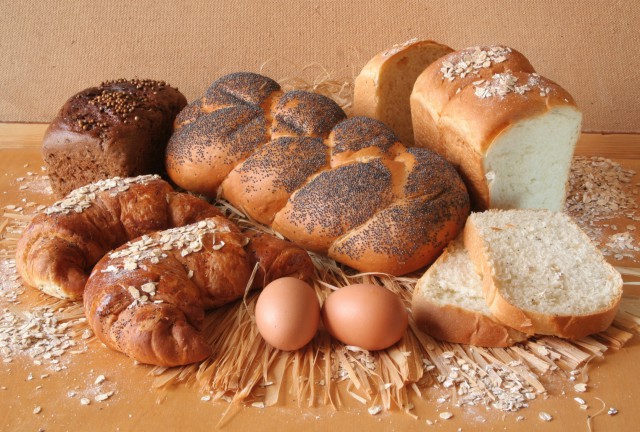
The term “gluten-free” has become something of a catchphrase around Boulder. There are gluten-free restaurants, gluten-free frozen foods, gluten-free cookies, bagels and breads. Though gluten-free foods are becoming a norm in Boulder, there is some debate about whether going gluten-free is just a fad or truly a healthier life choice.
Executive Chef Jeff Barbour of Restaurant 4580 in North Boulder says that when he moved to Boulder six years ago, he was taken aback by requests for gluten-free foods.
“I thought it would be a bit like the Atkins Diet fad. I didn’t know what it was or what the deal was,” Barbour says. “I had never heard of it before I came to Boulder, but then when you work with people that have to deal with having an intolerance on a daily basis, you realize how important it is for them.”
About 80 percent of the menu at 4580 is now gluten-free. In working with Restaurant 4580, whose owners are gluten-intolerant, Barbour says that he has found ways to make gluten-free foods that do not sacrifice taste.
“Now I realize that some people are more intolerant than others, and people saying they’re gluten-free aren’t necessarily phony,” Barbour says. “Our owners understand what it’s like if you have a gluten intolerance and you go out to a restaurant and you don’t have that many options.”
Gluten intolerance or sensitivity occurs to varying degrees, from celiac disease to a mild sensitivity, says Jane Reagan, a registered dietitian and clinical nutritionist at Essential Nutrition in Boulder. In celiac disease, the body attacks the microvilli in the small intestine when gluten is ingested, preventing people with the disease from getting the vitamins, minerals and calories necessary for normal bodily functions. People who are intolerant to gluten can experience a range of gastrointestinal effects, including diarrhea and bloating.
“Celiac disease is not a fad,” Reagan says. “If someone has celiac disease it’s a serious condition, where they have to permanently keep gluten out of their diet for the rest of their lives.”
At The Kitchen, requests for gluten-free meals have greatly increased in the past five years, according to Kyle Mendenhall, executive chef for all of The Kitchen’s restaurants.
“When I started in 2008, we would only have a very small amount of glutenfree bread available,” Mendenhall says. “I remember that there were two people that would come in for brunch every weekend that used to bring their own gluten-free bread in, and we would grill it for them. Over time, the requests became more and more frequent, and now it’s something that we carry on a regular basis.”
Currently, about one in every 133 Americans has celiac disease, and awareness about gluten intolerance is increasing, Reagan says.
“I think a lot of people who don’t feel good are deciding to remove gluten from their diet and finding that they feel better, and that is something that wouldn’t have been an option in the past,” Reagan says. “More people are aware of this being a potential culprit in their health problems, and so they’re more willing to try.”
On the other hand, there are people who aren’t gluten-intolerant but choose to remove it from their diet anyway, under the assumption that if so many people are doing it, it must be the healthier way to go.
“That’s such a farce,” Reagan says. “Gluten-free foods are often times less healthy, because they will have less fiber and they are less nutrient-rich. Instead of your whole-grain flours or rye or barley flours, you’re now using white rice flour, tapioca flour or potato flour, a lot of white starches that don’t have the nutrients that the whole grains do. They also add a lot of sugar to those products. I know people who go on gluten-free diets and actually gain weight.”
For people with gastrointestinal problems, Reagan suggests removing gluten from the diet completely for a couple of weeks. If the problems improve, celiac disease or gluten intolerance could be the culprit, and Reagan recommends further consultation or testing.
Respond: [email protected]














